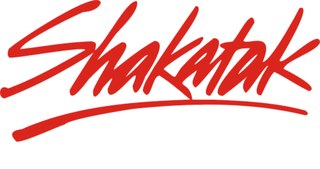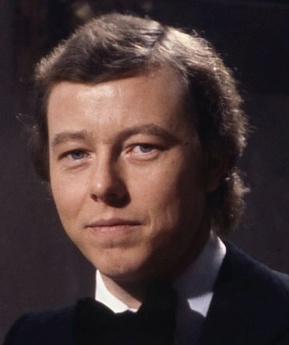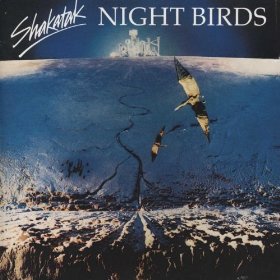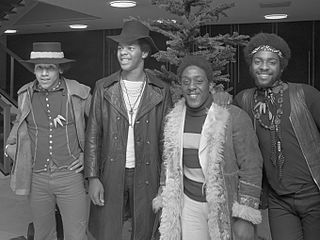The Fatback Band is an American funk and disco band that was popular in the 1970s and 1980s. The Fatback Band is most known for their R&B hits, "(Do the) Spanish Hustle", "I Like Girls", "Gotta Get My Hands on Some (Money)", "Backstrokin'" and "I Found Lovin'". Their 1979 single "King Tim III " is generally considered the first commercially released hip hop single.

Shakatak is an English jazz-funk band founded in 1980 by Nigel Wright and former Wigan Casino DJ Kev Roberts. Following an initial white label release, "Steppin", the band's name was derived from a record store in Soho, London Record Shack. It was they who first showed interest in the initial single.

The Dazz Band is an American R&B/funk band most popular in the early 1980s. Emerging from Cleveland, Ohio, the group's biggest hit songs include "Let It Whip" (1982), "Joystick" (1983), and "Let It All Blow" (1984). The name of the band is a portmanteau of the description "danceable jazz".

Imaani Saleem is an English singer, best known for representing the United Kingdom at the Eurovision Song Contest 1998 in Birmingham with the song "Where Are You". The song placed second in the contest, and became a top 20 hit in the United Kingdom, the Netherlands, and Belgium.

Peter Skellern was an English singer-songwriter and pianist who rose to fame in the 1970s. He had two top twenty hits on the UK Singles Chart - "You're a Lady" (1972), which typifies his signature use of brass bands and choral arrangements for a nostalgic and romantic feel, and "Hold On to Love" (1975). In the 1980s, Skellern formed the band Oasis with Julian Lloyd Webber and Mary Hopkin and established a musical comedy partnership with Richard Stilgoe in cabaret.
Freeez were an English electronic music group, initially known as one of the UK's main jazz-funk bands of the early 1980s before transitioning to an electro style. Initiated by John Rocca, Freeez consisted of various musicians, originally with Rocca and others such as Andy Stennett (keyboards), Peter Maas and Paul Morgan or Everton McCalla (drums). They had an international hit with "IOU", and a UK top 10 with "Southern Freeez".
Atmosfear are a jazz funk/Brit funk band who formed in the United Kingdom in 1978. The band was formed by two friends Lester J. Batchelor Jr. and Raymond Johnson two soul boys on the London Soul and jazz Funk music scene in the late 1970's, both were regular club goers and record collectors. Ray was a well known dancer and dance skater, Lester was a design student. They would hang out at local clubs such as Scamps, Bobby McGees, The Global Village, Wag and Billy's in London.

Incognito is a British acid jazz band. Their debut album, Jazz Funk, was released in 1981.
Brick is an American band that created a successful merger of funk and jazz in the 1970s. Their most popular single was "Dazz", which was released in 1976.
Light of the World are a British jazz-funk band.
Central Line was an R&B and soul band from London, England. They recorded two albums with Mercury in the 1980s and had two hit singles in the United States, as well as one Top 40 hit in their native country.
Animal Nightlife was a British group in the 1980s. It consisted of Andy Polaris on vocals, Leonardo Chignoli on bass, Steve Brown on guitar, Billy Chapman on saxophone and Paul Waller on drums.
Helen Rogers is a British singer/songwriter who has been active since 1978. She has been featured vocalist with Brit funk bands Direct Drive and 7th Heaven. She has also been a session singer for Paul Hardcastle.
Blue Rondo à la Turk was an early 1980s British musical ensemble, whose music featured elements of salsa, pop and cool jazz. The group placed two songs on the UK Singles Chart, but is perhaps better known in retrospect for launching the careers of several players who went on to form the sophisticated jazz/Latin/samba/pop group Matt Bianco.
Tyrone Brunson was an American singer and musician, who played the bass guitar. One of his most successful singles was an electro-funk instrumental titled "The Smurf" (1982), which reached #14 on the Billboard R&B chart in 1983 and led to further dance records about The Smurfs.

Night Birds, released in 1982 on the Polydor label, is the second album by English jazz-funk band Shakatak. Night Birds established Shakatak's trademark jazz-funk sound, and contains two of the band's biggest hits, "Easier Said than Done" and "Night Birds", the former reaching the No. 12 spot in 1981, the latter climbing to No. 9 in the following year.

Brass Construction is the self-titled debut album by the American funk band Brass Construction, released in autumn 1975 by United Artists Records. Recorded with producer Jeff Lane, the album weaves different influences, including Latin music and jazz, into the band's rhythmic funk style, and emphasises the group's brass section. The album's songs, all of which are named using a single verb, feature simplistic, repetitive lyrics, reflecting the group's desire for audiences to interpret the songs as they wish. Critics noted themes of social awareness in the lyrics.

The Real Thing are a British soul group formed in the 1970s. The band charted internationally with their song "You to Me Are Everything", which reached No. 1 on the UK Singles Chart. They also had successes a string of British hits such as "Can't Get By Without You" and "Can You Feel the Force?". They returned to mainstream success in 1986 with the Decade Remix of "You to Me Are Everything". By number of sales, they were the most successful black rock/soul act in England during the 1970s. The journalist, author and founder of Mojo magazine Paul Du Noyer credits them alongside Deaf School with restoring "Liverpool's musical reputation in the 1970s" with their success.
One Way was an American R&B and funk band that was popular in the late 1970s, and throughout most of the 1980s, led by singer Al Hudson. The group's most successful record was "Cutie Pie", which reached number 4 on the Billboard Soul Singles chart and number 61 on the pop chart in 1982.

"Chant No. 1 " is a song by the English new wave band Spandau Ballet, released on 10 July 1981 as the first single from their upcoming second album, Diamond. The band's guitarist/songwriter, Gary Kemp, wanted to pay homage to the latest London hotspot, Le Beat Route, by emulating the funk music that was popular there and even using the club as the location for the music video, all in order to show that the band was still part of the trendy Soho scene. Except for the remix of the song from the album's box set, "Chant No. 1" received good reviews, and the 7-inch single became their third top ten hit in the United Kingdom, peaking at number 3 on the UK Singles Chart.









